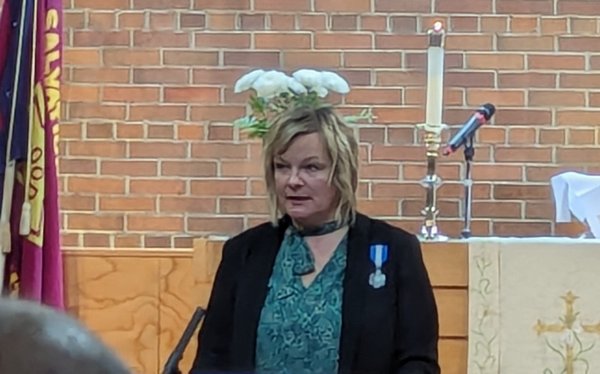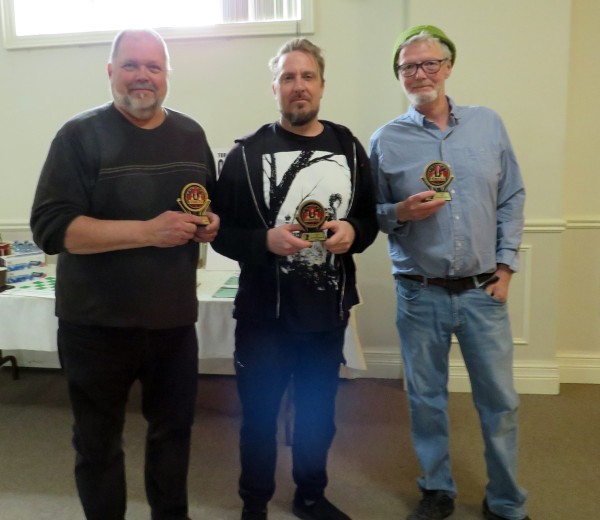Erik Coverdale, an engineer for a green energy company and former Hamilton Estonian School graduate, is an MPP candidate for the Green Party of Ontario in the Ancaster-Dundas-Flamborough-Westdale riding. A week before the October 6th election date, Eesti Elu interviewed Erik to discuss The Green Party’s steep ascent to becoming a serious political voice in Ontario politics and The Green Party’s stance on some of the most pressing issues for Ontario citizens.
EE: This is your first time running for political candidacy. What inspired this pursuit?
I was attracted to The Green Party as not only someone who works in renewable energy, but as a small business owner and concerned citizen because the party focuses on jobs, clean energy and conservation, an excellent food and farming strategy, a plan to fix healthcare by addressing the root of the problems, and changing government regulations to be more transparent and democratic. Politics as usual just isn't working in Ontario. All the majors parties are talking about tax cuts and more social programs when none of it is possible given our province’s shrinking tax base and soaring deficit. The tax-and-spend Liberals have degraded our quality of life with squandered public money, the PCs have no vision for the future, and the NDP over-promise so often there is no telling what they will actually accomplish if elected. I believe we are way overdue for progressive ideas in the Ontario Legislature.
EE: Even though it has been registered with Elections Ontario since 1983 and has had an official party leader since 1993, The Green Party of Ontario is considered to be a relatively young party competing in a three party province. Can you speak on the party’s evolution?
The Green Party was created out of necessity because usual politics are based on a very short cycle -- the election cycle. Because citizens need to see results for every election, some sort of noticeable improvement in their lives, a lot of the decisions that are made are very short term and are too often made selfishly in an attempt to further a political party’s image. However, it’s long-term decisions that are needed to make sure we are operating in a sustainable way. The great thing is that we have seen a shift in the public consciousness in the past twenty years. The public now knows that long-term goals and short-term results are not only ideal, but realistic. I think Ontario’s citizens are ready for a change.
EE: Despite a lively petition, the broadcast consortium of CBC, CTV, Global, Sun News, and TVOntario did not permit Mike Schreiner, The GPO leader, to participate in the leaders debate because The Green Party does not presently hold a seat in the Ontario legislature. Can you comment on what effect that might have in the elections?
Well, it’s really going to hurt us. We do have a great message that everyone in Ontario should hear, so it’s unfortunate because Ontarians missed out on being exposed to it because of the way the media is handling it. There was considerable surprise when The Green Party of Canada’s Elizabeth May, who was later elected, wasn’t permitted to participate in the federal debate either so there has been a lot of buzz about what this means from a democratic standpoint. Hopefully after this election The Green Party’s debate exclusion won’t happen again.
EE: The most significant policy innovation in the Green Party of Ontario’s platform is to transform how taxes are collected through a “Carbon Tax.” How will this affect Ontario families and businesses?
The Carbon tax shifts taxes off of things that we want, like employment and wealth creation with businesses and individuals, and puts it onto things that we don’t want, like pollution. So it’s kind-of a 1-2 punch. It helps the environment, and it also helps the economy.
EE: From whom are you most likely to receive opposition to the carbon tax?
The Conservatives are really trying to make a big issue of it, saying we have already brought in several new taxes like the HST, the Eco-tax, the health tax, etc. They claim the carbon tax is a tax we cannot afford. But actually, this tax will help us reduce the deficit, which is a huge problem. We are paying interest on this massive amount of debt we have in Ontario, 244 billion dollars, which is going to be worse than the tax itself. So we really need to tackle that deficit and a government tax is the best way to do that without taxing individuals who are already overtaxed.
EE: The GPO promises to eliminate donations from corporations and unions. On what scale is this feasible, and what does this promise to achieve?
Yes, it is feasible. It’s a matter of changing the mandate of elections Ontario, and it’s not only just a good idea, it’s essential. It needs to be done because there is too much influence on the political scene. As soon as you have corporations and unions donating to political parties, there is an expectation that those parties will give special treatment to said donors. So by having only individuals donating, it will level the playing field for all of the parties, and remove the undue influence on the political system.
This would also make all the political parties operate on much smaller budgets. We don’t need to have these multi-million dollar expenditures in political campaigns. It’s a waste of money. And it is tax payers’ money, because all of these corporations get tax breaks for their political contributions. So it would also save the tax payers money as well as level the playing field politically.
EE: There is a common perception, perhaps due to the Party’s past platforms, that The Green Party of Ontario is narrowly concerned with environmental issues. Can you speak on this perceived focus and how the Party plans to overcome it?
Yes, that is a perception we are trying to overcome. Yet the reason it is hard for us to do that is because the environment is something that gets completely neglected by the other parties in a lot of cases, so that’s why we keep coming back to it. Someone has to talk about it. The environment is also connected to our health, our well being, and our economy. It is all dependent on the natural world on some level. If we continue to externalize our economic costs, it is going to degrade what is actually a revenue base for our economy. Our economy actually is based on our natural world in a lot of ways, so we need to make sure we preserve our environment for that reason, not only just for the environment’s sake.
EE: What is the Green Party’s stance on health care?
The Green Party is the only party that is focused on a preventative and holistic approach to health care. We realize that a lot of the health care costs are coming from the way that people are living their lives. Let’s talk about commuting for example. If someone works an 8 hour day then spends two hours before and after in the car, that’s a lot of physical inactivity assuming it is an office job. These unhealthy lifestyles lead to increased costs. We also need to crack down on smoking, and encourage consumption of organic foods. 50% of our provincial budget goes into health care, and that number is projected to go up to 80% in 2030. If we don’t start to embrace a holistic approach this trend isn’t going to reverse itself.
EE: During this 2011 campaign, the mainstream media has often grouped together the NDP and The Green Party. Is this because they are both marginalized parties or because they have similar platforms?
I would strongly disagree that we have similar platforms. The segment of the NDP’s platform which they call “Affordable Green Choices” is essentially ripped off of the Green platform, and plainly conflicts with a lot of other things they have in their platform like subsidizing gasoline prices. It’s patchwork policy. It seems the NDP is attempting to steal Green votes with these false promises.
EE: Who are the Green Party’s supporters?
The youth definitely understand our message because they are long term thinkers. University students are especially passionate Green Party supporters because they recognize the need to invest in the long term; it’s not just here and now. Also seniors, who are concerned with future generations. The middle class is probably the slowest to warm up to the Green message. They are voting very strategically. I think they are all very Green on the inside, but for one reason or another they tend to go the other way. It will take some time to gain their trust, and to do that we need to be especially strong and persistent to ensure our voice is heard and prove we are in this for the long term.
EE: What are The Green Party’s goals for this election?
One major goal is to attain at least three or four seats in Ontario legislature. We also want our numbers up province wide, which will continue to build and strengthen our party. That’s probably our number one goal, to keep sending out our message to get as much exposure as we can. We have already had considerable influence on the other political parties just by just being here, on the NDP’s platform for instance as I mentioned earlier. But ultimately we aren’t trying to be just a slice of the pie. I believe if the Greens were elected we could form a very effective government. In the last election we garnered over 8% of the vote, but we didn’t succeed in electing an MPP. With candidates running in every riding in the province we hope to change that this time around.
* For more information on the Green Party’s platform, please visit www.gpo.ca .

Erik Coverdale, Green Party candidate (1)
Eestlased Kanadas | 30 Sep 2011 | Eesti Elu
Viimased kommentaarid
Kommentaarid on kirjutatud EWR lugejate poolt. Nende sisu ei pruugi ühtida EWR toimetuse seisukohtadega.
"We also need to crack down on smoking, and encourage consumption of organic foods."
To do that you'll need a massive army.
To do that you'll need a massive army.
Eestlased Kanadas
TRENDING


























